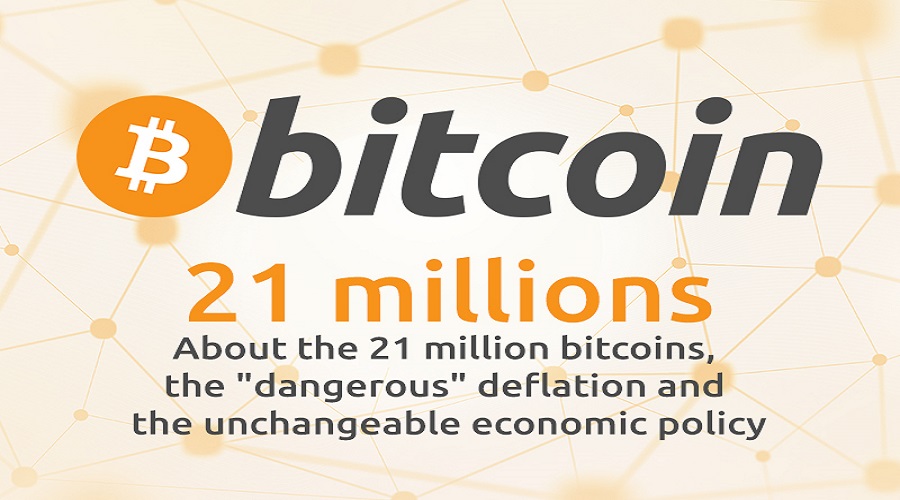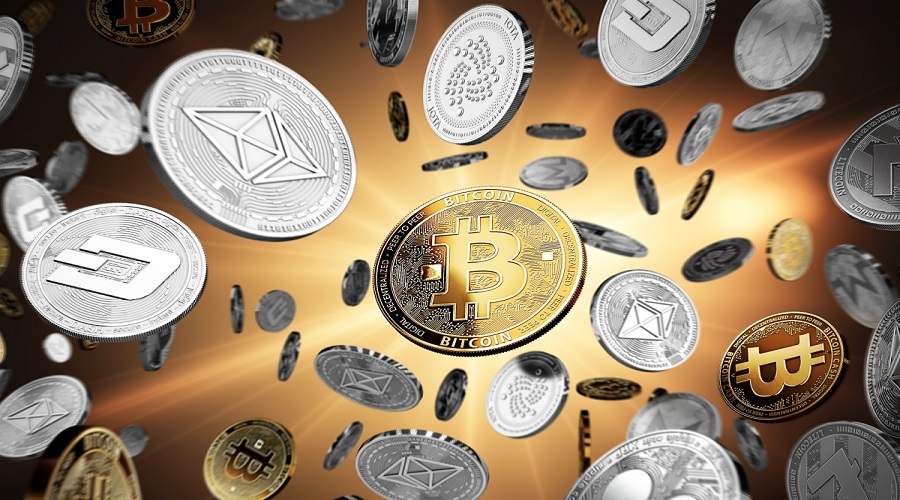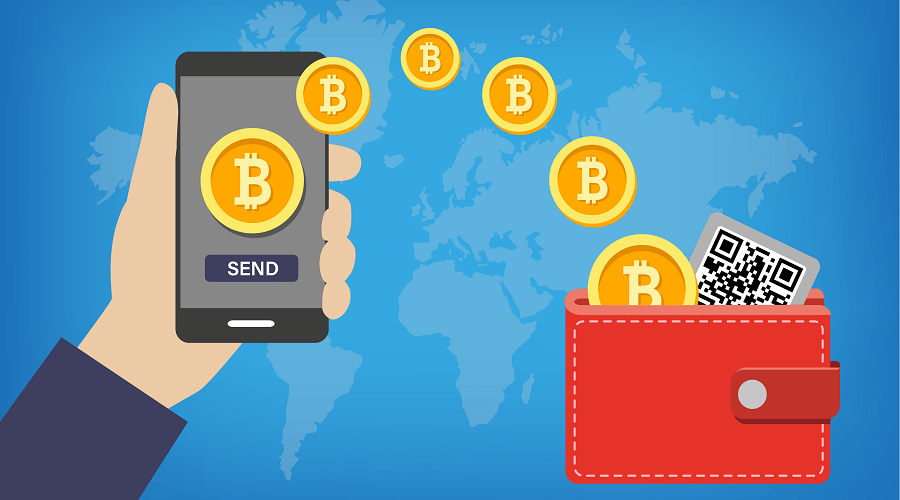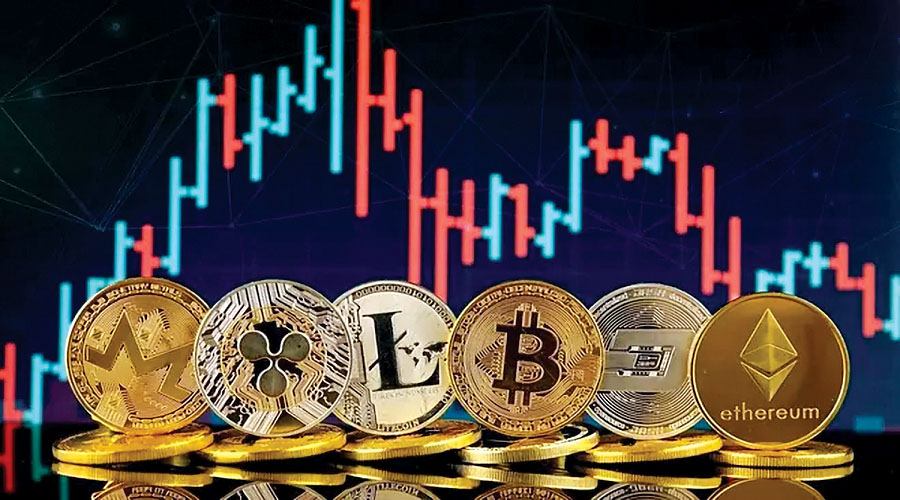Table of Contents
ToggleGeneral information
It is imperative for novices to possess fundamental knowledge regarding cryptocurrency. Below, I shall provide a detailed guideline on essential information pertaining to cryptocurrency investment.
Aspects that you need to know include:
- How to distinguish virtual money and cryptocurrency
- Cryptocurrencies and various types of blockchain, including Blockchain Currency, Blockchain Smart Contract, coin, token, bitcoin, and altcoin, can be classified in a discernible manner.
- Where can one buy, sell, and store cryptocurrencies?
- The various modes of cryptocurrency investment and the requisite knowledge to facilitate it
- Cryptocurrency information platforms with strong credibility are deemed as the most esteemed and reliable sources in the industry.
The Crypto market presents ample opportunities for profitable investment, which attracts the interest of many individuals, even those with limited capital. It is important to note, however, that such endeavors do come with inherent risks. Therefore, it is advisable to conduct thorough research and fully comprehend the potential implications prior to committing any financial resources.
What is Crypto?
The term “Crypto” or digital currency refers to a type of digital asset issued through the use of Blockchain technology. And as such, all transactions conducted with it are transparent, immutable, and incorruptible. It operates akin to physical cash, but distinguishes itself in that all transactions are recorded on the Blockchain.
For example, Bitcoin there are only 21 million Bitcoins and no one can issue another 1 BTC when that coin is mined.

In the future, additional cryptocurrencies such as Ethereum, Litecoin, Ripple, BNB, Cardano, and Tron will emerge. However, it’s important to note that not all digital currencies are created equal. Further elaboration on this topic will be provided in the following section.
Benefits of Crypto
The involvement of intermediaries is unnecessary
Cryptocurrency operates on a peer-to-peer network that does not rely on banks for transaction verification. This network allows individuals to send and receive payments from anywhere. Instead of being physical currency, which requires transportation and exchange in the physical world, cryptocurrency payments exist in a purely digital format. This modern financial system operates independently of traditional banking institutions.
=> When transferring a cryptocurrency, such as a coin, the transactions are sequentially recorded on the ledger known as the blockchain. It is important to note that having sufficient balance is all that is required to transfer funds as nobody possesses the authority to seize or freeze them.
It is easy to move from one place to another
Due to its digital nature, Crypto is highly mobile and can be accessed from anywhere provided there is an internet connection and a private key. This makes it extremely convenient for those who wish to handle their coins on the go.
=> Funds are continually stored securely and protected within a cryptographic wallet for enhanced safety and security.
It is impossible to alter
Incorporating Blockchain technology ensures that once a transaction has been successfully executed, the data pertaining to it is immutable and cannot be altered, modified, or deleted by any party.
Flexible transaction
Each unit of Coin is divided into very small fractions when traded, for instance, one BTC can be split into 100,000,000 Satoshis (i.e. 0.00000001 is the smallest unit), enabling users to conduct transactions at any scale.
Intervention and destruction are difficult to execute
The cryptocurrency held by an individual cannot be destroyed as long as there are multiple computers maintaining the network, making it more durable than physical currency and even legal tender or precious metals. Additionally, if a government were to prohibit the use of Bitcoin, it would only be able to forbid its citizens from utilizing it, and not successfully obstruct the operation of the underlying Blockchain technology.
What is the rationale behind the need to utilize crypto currencies?

Both cryptocurrencies and fiat currencies derive their value from trust. As long as we maintain our trust in the established fiat currency system, it will continue to hold its value. Similarly, cryptocurrencies hold value because people believe in their unique characteristics such as limited inflation, transparency, fairness, and round-the-clock trading.
For example: Bitcoin is not controlled by any central bank and does not have guaranteed value like traditional money. However, its decentralized nature allows for the creation of a unique financial system, aided by the blockchain technology that provides benefits such as high security and immutability. Additionally, Bitcoin has completely revolutionized the way global financial transactions are conducted.
The value of cryptocurrencies lies in their impact on four major aspects
A significant transaction at a reduced cost
The greatest advantage of Crypto is its ability to rapidly transfer large amounts of money globally without any intermediaries. While the cost to send a small amount of BTC is relatively expensive, one can send millions of dollars for a similar fee as sending $10.
Upon viewing the image below, one can observe a Bitcoin transaction worth over 45 million USD that was sent with a fee of less than 50 dollars in June 2021.

The currency of freedom
Decentralization is one of the essential characteristics of cryptocurrency. With the elimination of a central authority, blockchain technology offers increased autonomy and empowerment to the community. Every individual is welcome to contribute to the improvement and optimization of the Bitcoin network as it is open-source, provided that any changes are universally accepted by all nodes in the network.
=> In the Bitcoin network, every node is unable to make decisions on behalf of all individuals. Both updating the protocol and confirming transactions require the consensus of all parties involved. This serves as a safeguard against inadequate management and misuse of Bitcoin.
The scarcity factor contributes significantly to the value of cryptocurrency
The maximum supply of Bitcoin is 21,000,000 BTC, and no additional BTC will be created once Bitcoin miners have extracted the final coin in the year 2140. While the supply of traditional commodities such as gold, silver, precious gems, and oil is limited, new reserves are continually discovered each year. Accordingly, it can be challenging to accurately calculate the scarcity of these commodities as new reserves are consistently emerging.
In theory, upon the depletion of all mined Bitcoins, the inflation of Bitcoin will decrease, as loss or destruction of coins further reduces the supply, potentially leading to an increase in value in the future. It is for this reason that many individuals perceive the value of Bitcoin through its scarcity.
Where property value is stored
Due to its advantages, Bitcoin can be a suitable store of value, representing a modern alternative to traditional options like gold, the US dollar, precious metals, or government bonds. Nevertheless, Bitcoin is increasingly gaining fame as a digital form of gold and a replacement solution for the modern era.
Does investing in cryptocurrency entail any risks?
Yes so..
- Since there is no central storage for encrypted currency, it is imperative that individuals keep their private keys secure to ensure availability of their funds. It is important to note that unlike other applications, private keys cannot be recovered if forgotten. Therefore, it is advisable to have a proper backup plan in place to maintain access to one’s encrypted currency. => If an access key is forgotten, it is important to note that any remaining balance of encrypted funds may become unrecoverable.
- Because it has not yet been officially recognized or safeguarded by the law, you are solely responsible for your own investments.
- The prices of cryptocurrencies often experience significant fluctuations. While investing in the right coin may lead to substantial wealth accumulation, selecting the wrong coin or participating in fraudulent schemes such as scams, Ponzi schemes, or other deceitful projects due to lack of knowledge may result in total loss of funds. It is imperative to exercise caution and educate oneself before investing in cryptocurrency.
To make sound investment decisions, it is advisable to view the full series sequentially, as this step is consequential in gaining a thorough grasp of the subject matter and making knowledgeable choices about investments.
The classification of Cryptocurrency and Blockchain
Once we have understood what Crypto is, the next question that arises is:
- What is the number of blockchain types available in the market?
- How many types of cryptocurrency (digital currency) are there?
- Where can we trade and purchase them?
In the Crypto market, Blockchain technology is categorized into two main types: Blockchain Currency and Blockchain Smart Contract based on their respective attributes.
Blockchain Currency
This currency is only permitted to be used as a decentralized form of currency, for the purpose of exchanging, buying, or storing value. Consequently, the ledger is specifically designed to maintain and record transactions performed by users.
Ví dụ: Bitcoin, Litecoin, Monero, Zcash, Dash, Bitcoin Cash, Stablecoin.
Stablecoins possess a unique characteristic in that they function solely as currency, yet do not utilize their own blockchain.
Blockchain Smart Contract
Not merely a form of currency, Blockchain technology not only stores transactions but also has the capability to store Smart Contracts that allow developers to create Dapp, DeFi, Metaverse, NFTs.
=> There exist numerous additional applications of Blockchain technology, however, its primary characteristic is its ability to facilitate Staking.
Ví dụ: Ethereum, Binance Coin, Cardano, Tron, Solana, Avalanche, Polkadot, Near.
=> It can be observed that not all cryptocurrencies are created equal, as they differ based on the blockchain technology they utilize. The only commonality among them is that they represent a value trusted by the community and can be traded globally 24/7 at a low cost.
In the wake of Blockchain Smart Contracts, numerous other types of blockchains have emerged including Public/Private blockchain, Hybrid Blockchain, Semi-private Blockchain, and Consortium Blockchain.
When discussing Cryptocurrency, it is important to note that it is typically categorized into two distinct types, Coin and Token.
Coins and Tokens in Crypto
What is Coin?
The term “Coin” is used to refer to digital currencies that possess their own unique blockchain. If a particular currency operates on its own blockchain, it is called a Coin, whereas if it does not, it is known as a Token.
What are Tokens?
Token, like Coin, is a type of cryptocurrency that is issued on a blockchain network. However, unlike Coin, Token does not have its own dedicated blockchain platform and must instead rely on existing blockchains for its functionality. In essence, Token lives as a parasitic entity on other blockchains.
For example:
- The token of Uniswap, known as UNI, is recognized as a cryptocurrency as it is held and traded on the Ethereum blockchain, which serves as a secure and decentralized platform for various digital assets.
- The CAKE token issued by Pancakeswap is regarded as a token due to its storage and trading capabilities on the Binance Smart Chain.
- The SRM token, which is the token of Serum, is also a token that is stored and traded on the Solana blockchain.
Certain tokens have the aim of building their own Blockchain platform and when it becomes robust enough, the token is considered a coin.
For example:
Prior to the development of its mainnet, the SOL token of Solana was reliant on the Ethereum network, and all storage and transactions were required to occur on the Ethereum blockchain. However, after the implementation of its mainnet, Solana established its own standalone blockchain, thereby elevating SOL to the status of a coin that runs on the Solana Blockchain. This new blockchain is capable of generating additional tokens beyond SOL, should the need arise. This development provides Solana with increased autonomy and flexibility in conducting transactions and managing its digital assets.
Crypto Exchange

In order to successfully engage in cryptocurrency trading as a newcomer and quickly convert cash to crypto and vice versa, it is recommended that one utilize reputable exchange platforms such as Binance, Remitano, and OKX. These exchanges offer efficient and secure conversion services for individuals seeking to navigate the crypto market.
Upon completion of the registration process, it is imperative to complete the KYC portion and enable the necessary security measures. It is crucial to follow the provided instructions thoroughly to mitigate any potential losses during cryptocurrency transactions. Neglecting these steps may result in unnecessary setbacks and regrets in the future. Remember, it is best to proactively tend to these matters to avoid confrontation with any arising issues.
Additionally, the Crypto trading platform is divided into two primary categories:
CEX centralized exchange platform is a cryptocurrency exchange that is controlled by a third-party intermediary, which serves as a bridge for exchanging assets. This makes trading more convenient for users and enables easier rectification of issues such as forgotten passwords. Example: Binance, Remitano, Huobi, Bybit, Kucoin, Coinbase, Gate.io,..
The decentralized exchange (DEX) is a platform constructed to operate in a decentralized fashion utilizing blockchain technology. The most significant difference between DEX and centralized exchanges (CEX) lies in the fact that users are able to buy, sell, and exchange coins directly from their personal wallets, without having to store funds on the exchange. Transactions only take place when authorized by the user, who also maintains custody of the private key. Example: Uniswap, Pancakeswap, Sushiswap, Saber, Spiritswap, Quickswap,..
Furthermore, there are several other distinguishing factors such as asset control capacity, anonymity, intermediaries, and permissible trading asset volume. However, Dex does have a weakness in that purchasing and selling with cash is not possible, as it only accepts cryptocurrency transactions. Consequently, one must still use centralized exchanges such as Binance or Remitano to transfer cash to cryptocurrency before being able to trade the acquired coins on Dex. Similarly, when cashing out, the entire coin amount must be withdrawn back to the centralized exchange before being converted to cash.
=> It is not advisable to engage in trading on Dex exchanges if one lacks sufficient knowledge and experience in trading.
Cryptocurrency wallet

Once we have comprehended the fundamental concepts and classification, the subsequent step would be to understand the method for storing crypto assets.
As with customary practices, when holding currency we require a wallet. The same applies for digital currency, which is stored in a digital wallet. A crypto-wallet is a software that facilitates sending, receiving, storing, and tracking balance of various coins/tokens.
There are numerous methods of categorizing crypto wallets, however, for the sake of clarity, I will break them down into three primary types: Hot wallets, Cold wallets and Exchange wallets.
Hot Wallet
A hot wallet is an online storage form that requires an internet connection to operate, and it allows users to securely manage and maintain possession of their private keys to safeguard their assets.
One of the notable advantages of this type of wallet is its convenience. It can be easily installed on a smartphone, computer, or as a browser extension.
One vulnerability is the susceptibility to hacking if a phone or computer becomes infected with a virus. Currently, some of the safest and most reputable types of antivirus software include Trust Wallet and MetaMask.
Before the year 2020, the distinct characteristic of hot wallets was solely their ability to store cryptocurrency. However, current hot wallets have integrated additional features, such as direct token swapping without the need for laptop connection and the creation of personalized investment portfolios for portfolio tracking. Additionally, storage capabilities have expanded beyond the limited support for a few blockchain networks in the past, now accommodating a wide range of token standards including ERC20, BEP20, AVAX, SPL, and many others.
Cold Wallet
A Cold Wallet, also known as a hardware wallet, is fundamentally different from a Hot Wallet. It is a physical wallet that can be held, touched, and seen; and it does not remain constantly connected to the Internet, only being connected when a transaction is initiated. This type of wallet is ideal for long-term investors who do not engage in frequent trading, as each transaction requires significant effort and attention. However, the security advantages of a Cold Wallet are immense, as the lack of a continuous online connection greatly minimizes the risk of hacking and theft. Some notable examples of Cold Wallet products include Trezor and Ledger.
Exchange Wallet
The Exchange Wallet appears to be one of the frequently used wallets by investors nowadays due to its ability to facilitate swift transactions of various assets and cash out efficiently when needed. However, since this exchange wallet is created on trading platforms, users cannot hold the private key directly, which may pose risks such as scams, sudden disappearance, or shutdown without allowing users to withdraw their funds.
What is the reason behind people’s preference for using Exchange Wallet?
For the sake of convenience, retail investors often purchase USDT via P2P and store it on exchanges to buy the desired cryptocurrency. When they make a profit, they either hold the assets or liquidate them on the exchange, allowing for quick cash withdrawal when needed. Moreover, investors with limited capital tend to avoid transferring their funds to multiple destinations due to high withdrawal fees, which can sometimes be unreasonable compared to the value of the assets.
An example can be observed in the early part of 2021 when the gas fees were exceptionally high, resulting in significant withdrawal charges for ERC-20 tokens to be transferred to wallets, with fees peaking at hundreds of dollars for a single transaction. This imposed an unmanageable burden on investors with limited capital, who found the fees to be exorbitant.
The gas fee refers to transaction fees incurred when buying, selling, or exchanging a cryptocurrency coin or token, or when transferring to other wallets. The gas fee varies across different blockchains, and therefore the calculation method may differ slightly.
The current status of cryptocurrency is a matter of concern and interest in today’s economic landscape

In contrast to the years 2017-2018, when Bitcoin, cryptocurrency, or digital currency were mentioned, people viewed it as a tool for fraud, money laundering for criminal elements, or commonly associated with the likelihood of losing money when investing in Bitcoin.
However, the truth has proven that cryptocurrency, specifically Bitcoin, has been operational for over a decade without any major issues. Five years ago, there were voices calling for the demise of Bitcoin. Nonetheless, as of the time of writing, Bitcoin has not only survived but maintained a value of $25,000, and even reached a high of $60,000 (equivalent to approximately 1.5 billion Vietnamese dong for one BTC).
If investors, unfortunately, bought at the peak of the market in 2017 with a price of $20,000 and held steadfast, they would have all gained a profit. This prompts the question of whether or not investing in cryptocurrency is truly a risky venture.
Apart from the differences between previous years and 2021, it is noteworthy that major funds have begun to recognize the enormous profit potential of investing in crypto. Notable examples include Square, Grayscale, and Microstrategy who have acquired substantial amounts of Bitcoin along with large-cap Altcoins such as ETH, MATIC, SOL, DOT, ATOM, and ADA.
From an investment perspective, many large banks such as Morgan Stanley, JP Morgan, as well as companies like Tesla, Apple Pay, and Paypal have already embraced Crypto as a payment method, proving its practicality and value beyond the scope of mere investment.
The global landscape has begun to shift as numerous countries officially accept Bitcoin as a means of payment, with El Salvador being the first. In conjunction with this acceptance, the country’s president also signed an order for an airdrop of $30 worth of BTC per person to all citizens, demonstrating a historic move and a widespread recognition of Bitcoin’s legitimacy.
Prior to investing in cryptocurrency, several preparatory steps should be considered
Equipping oneself with essential knowledge pertaining to Cryptocurrency is imperative, given its rapidly increasing popularity and influence in the financial sector

If you have the patience to read this far and are interested in starting with the field of crypto investments (commonly referred to as virtual currency investments), then it is important to note that regardless of the specific field you choose, the primary requirement is foundational knowledge.
The knowledge in the field of Crypto is vast and cannot be quantified by hours, days, months, or even years. To improve one’s knowledge, daily diligence is required, as everything in this market changes rapidly. What you thought was correct yesterday may not necessarily be correct today.
Currently, the Crypto market is experiencing rapid growth in the field of DeFi (decentralized finance), leading to substantial cash flow growth within large ecosystems. Notably, some ecosystems with the highest Total Value Locked (TVL) are ETH, BSC, Tron, Solana, Near, and Avax.
To elaborate on Decentralized Finance (DeFi), it is a financial infrastructure that is not centralized and utilizes the power of Blockchain technology to create an open financial system accessible to everyone, anytime and anywhere, without being subjected to the control or governance of any centralized organization. DeFi offers flexible and decentralized financial services that provide financial freedom to individuals and communities without having to rely on traditional centralized institutions.
What is the amount of initial investment in cryptocurrency?
Many people often wonder how much capital is needed to invest in digital currency, specifically Bitcoin, which is the next issue to address.
In actuality, there is no definite answer to this issue, as what you may consider as significant may just be a tiny speck on the vast desert for someone else. However, a general suggestion is to always consider the potential risks involved in investing and utilize excess funds when possible. This way, if any unfortunate losses do occur, it will not significantly impact your overall livelihood. Alternatively, individuals with limited capital can refer to the advice on balancing funds at the end of this article. It is essential to approach investment decisions with caution and careful consideration to ensure the best possible outcomes.
This statement is widely recognized among our peers; however, only a few are able to put it into practice. Many individuals are solely focused on the high profit margins that the market can offer and are willing to resort to borrowing from friends and family, with the belief that they will repay the debt with their future earnings. Nonetheless, making substantial gains in the market is not an easy feat, and no one can predict the future with certainty. Even if one has invested in the right project, it may take almost a year to generate profits, and prior to that, there will be constant fluctuations, sometimes resulting in a three to five-fold decrease, which can create a sense of uncertainty and stress, making it easy to cut losses and lose money.
This matter not only affects capital but also emotions and confidence when making future investment decisions, thus it is imperative to exercise caution with one’s initial investment capital. The best approach may be to utilize a conservative amount of capital initially, and only if it shows positive growth over a period of 6 months to a year, should further investment be considered. At this point, one’s experience and knowledge will likely be sufficient to manage larger sums of money.
How to buy and sell coins with cash in cryptocurrency investing for beginners?
Once a trading account has been created, there are two methods available to commence investing
- One could conduct a peer-to-peer (p2p) transaction on a cryptocurrency exchange to purchase Bitcoin directly with cash.
- Acquire USDT first and subsequently utilize it to procure Bitcoin or other alternative cryptocurrencies.
Depending on the type of coin you intend to purchase, the method of buying and selling may vary. To provide a general overview, I have outlined the buying and selling processes used by several reputable exchanges.
Ensuring the protection and security of assets is of paramount importance
It is important to note that asset security is a crucial aspect in the realm of cryptocurrency. The industry is prone to various forms of fraudulent activities, ranging from deceiving users to disclose their private keys to escaping scams that lead to financial losses. These occurrences have contributed to the negative perception of the cryptocurrency market.
As a result, it is advisable to exercise caution with one’s every action prior to engaging in asset transactions. No one is capable of causing your assets to disappear, provided that you know how to carefully manage and safeguard them. It is recommended to adopt a diligent approach in handling one’s assets to avoid losses.
When conducting transactions on an unfamiliar exchange
It is necessary to thoroughly investigate the establishment date, level of credibility, and current user base of the platform’s flooring prior to making any decisions. A comprehensive assessment of these factors is crucial to ensuring an informed and sound judgment.
When desiring to purchase ICO tokens
It is important to conduct an assessment on the purpose and the developer behind a project before investing in its tokens in order to mitigate any potential risks associated with it.
Cryptocurrency investing for beginners is a popular method of investing in digital currency
There are two commonly used methods of investing in cryptocurrencies, which include:
Trade
The term “trade” can be easily understood as a continuous buying and selling activity. This investment method is characterized by the absence of a set time rule between buying and selling, which could take hours, days, or even months. However, what is common is the short-term gains and not holding on for too long. The traders in this sector typically rely on technical analysis and primarily trade with margin/futures, examining charts to identify perfect entry and exit points, with potential profits ranging from 30% to 100%. Additionally, one may refer to the critical On-chain data index on CryptoQuant as an essential resource to support their investment decisions.
Hold
The primary criterion for purchasing assets among users is the analysis of project-related factors, potential evaluation, and project development, rather than relying on technical analysis (or very little). Project-oriented analysis may involve assessing market context, comparing with competitors in the same customer base and segment, and providing an assessment of whether the project has investment potential. Holding typically lasts for a considerable period, usually between six months to one year, but the profits earned when the assessment is correct are usually high, with targets ranging from x5 to x10, with some exceptional projects yielding returns up to 100 times the asset value.
Reliable sources of information on cryptocurrencies are available on reputable websites
Given the current volatile state of the cryptocurrency market, how can one consistently make informed investment decisions among the plethora of Crypto projects that rise and fall rapidly?
The answer is that continuous updates on complete and accurate market information are necessary to stay informed. An additional concern is the need to filter trustworthy sources of information and select the newest and most comprehensive ones. Presented below are a few credible websites providing information on crypto.
For the most prompt news updates, turn to Telegram, Twitter, and Facebook. These social media platforms offer the latest information and breaking news trends.
The latest market information can be found on reputable sources such as Coindesk, Coinmarketcap, and Coingecko.
Reliable sources of in-depth research information include Messari, The Block, Delphi Digital, Binance Research, and Medium.
Frequently asked questions
The methodology for distinguishing between Bitcoin and Altcoin
It is relatively easy to separate cryptocurrency into two categories, Bitcoin and the rest, by utilizing this particular calling method.
As discussed in the preceding section, Bitcoin is the world’s first digital currency that laid the foundation for the development of the broader cryptocurrency market. Known for its decentralized nature and immutable technology, Bitcoin has gained significant popularity among investors and technology enthusiasts worldwide.
The term Altcoin is a combination of the words Alternative and Coin, used to refer to all types of coins/tokens other than Bitcoin. The Altcoin market was established with the purpose of replacing Bitcoin’s prominence in the cryptocurrency industry, hence the name.
Therefore, with the exception of Bitcoin, any form of Coin or Token is categorized as an Altcoin.
What is the actual basis for assigning value to Bitcoin?
Undoubtedly, you might have often heard people stating that Bitcoin has no real value unlike gold or stocks which have a company backing them and creating actual products that hold substantial worth for the society. However, one must realize that at present, Bitcoin is efficiently facilitating millions of dollars’ worth of transactions every second, across the globe, without the need for any intermediary banks, governments or third party entities.
The blockchain network of bitcoin has performed exceptionally well in fulfilling its task, running continuously for 14 years without any known incident of error or malfunction. If this is not considered to be value, what else could it be?
In the digital realm, new developments often present challenges, particularly in newly emerging areas such as Blockchain. It can be difficult to appreciate the true value of such innovations until they have gained widespread stability and adoption. For instance, in contemporary society where fiat currency norms are ingrained, many might initially dismiss Bitcoin as mere hype or speculative activity.
What factors contribute to the fluctuation in the value of Bitcoin, leading to both increases and decreases in its price?
The price of bitcoin increases when there is a higher demand for it as its supply is limited to only 21 million coins. Conversely, the value of bitcoin decreases when there is a decrease in demand, resulting in a simultaneous sell-off.
How can one purchase Bitcoin with its exorbitant value?
Currently, BTC has a fairly high value, which may cause apprehension among those who are new to the cryptocurrency world, due to their perceived financial inability to own even a single unit of BTC. Nevertheless, in reality, BTC can be purchased in many different scales of capital, as it can be divided into 100,000,000 Satoshi (the smallest unit of BTC).
For instance, if the current price of Bitcoin is at $30,000 and you intend to purchase it using $100, then you will receive 0.00333333 BTC in return. This can also be interpreted as acquiring 333,333 satoshi.
What would happen if the government were to impose a ban on Bitcoin throughout the country?
Presently, Bitcoin has been in existence for 14 years and has undergone two phenomenal price surges – one at $20,000 in December 2017 and the other at $67,000 in September 2021, resulting in some individuals earning substantial profits while others lost considerable amounts of assets. Therefore, if Bitcoin poses a serious threat to an individual country’s financial system or legal tender, or challenges its sovereignty, it is possible that all countries could ban Bitcoin in just a single night, without delay.
If Bitcoin is still not banned, it implies that it continues to provide significant profits for countries. Moreover, if not banned, authorities will undoubtedly look for ways to regulate it in order to collect taxes. This is a matter that should be of concern to everyone.
Similar Information
What is Animoca Brands? Investment trends of Animoca Brands fund
The investment fund, Animoca Brands, specializes in the areas of NFT, gaming, and metaverse. An analysis has been conducted on...
Read moreWhat is Stader Labs (SD)? A comprehensive guide to SD cryptocurrency
What is Stader Labs? Stader Labs is a multichain Liquid Staking platform that enables users to participate in staking while...
Read moreWhat is DeFi Land (DFL)? A comprehensive overview of the digital currency DFL
DeFi Land is a simulated farming game developed to gamify the DeFi ecosystem on Solana, however, the current state of...
Read moreWhat is OpenSea? A comprehensive guide on how to use the NFT Marketplace OpenSea with detailed instructions
OpenSea is a state-of-the-art tool that caters to the new demand of humans in today's era, which involves the buying...
Read moreWhat is Friend.tech? Overview of the electronic currency Friend.tech
The Base is a layer constructed by the Coinbase team that has been mainnet for a considerable amount of time...
Read moreWhat is Highstreet? Complete information about HIGH & STREET Token
The ongoing explosive growth of Metaverse is anticipated to continue through the end of 2021, and it is predicted to...
Read moreWhat is Ancient8 (A8)? Complete information about A8 cryptocurrency
The robust growth of Axie Infinity and the GameFi model in general in 2021 remains a topic of utmost importance...
Read moreWhat is Yield Guild Games (YGG)? This comprehensive article elucidates the intricacies of the YGG cryptocurrency
The recent surge of the Trend Play to Earn phenomenon has provided a launching pad for numerous game development projects...
Read moreWhat is BlackRock, and what are the implications of the financial giant’s foray into the world of cryptocurrencies?
On August 11th, BlackRock issued a statement announcing its intention to offer Bitcoin spot investment services to its clients through...
Read moreWhat is Digital Currency Group (DCG) and what are the investment trends of the DCG fund?
The Digital Currency Group is a prominent investment fund established in 2015 that has made successful investments in numerous projects...
Read more





































